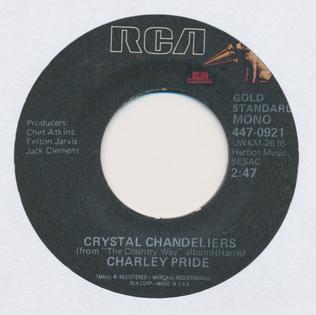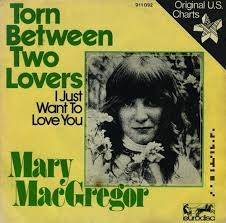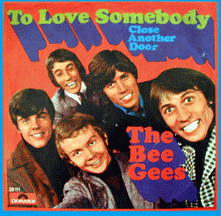Related Research Articles

"I Write the Songs" is a popular song written by Bruce Johnston in 1975 and released on his album Going Public in 1977. Barry Manilow's version reached number one on the Billboard Hot 100 chart in January 1976 after spending two weeks atop the Billboard adult contemporary chart in December 1975. It won a Grammy Award for Song of the Year and was nominated for Record of the Year in 1977. Billboard ranked it as the No. 13 song of 1976.

"Angel of the Morning" is a popular song written by Chip Taylor, originally recorded by Evie Sands but which first charted with a version by Merrilee Rush. The song has been covered by many artists including Chrissie Hynde, Dusty Springfield, P. P. Arnold, Connie Eaton, Mary Mason, Guys 'n' Dolls, Melba Montgomery, Olivia Newton-John, Bettye Swann and most recognizably by Juice Newton.

"Three Times a Lady" is a 1978 song by American soul group Commodores for their album Natural High, written by lead singer Lionel Richie. It was produced by James Anthony Carmichael and Commodores.

"(You Make Me Feel Like) A Natural Woman" is a 1967 song by American soul singer Aretha Franklin released as a single by the Atlantic label. The words were written by Gerry Goffin from an idea by Atlantic producer Jerry Wexler, and the music was composed by Carole King. Written for Franklin, the record was a big hit reaching number 8 on the Billboard Hot 100, and became one of her signature songs. It made history in the UK singles chart a week after her death, finally becoming a hit almost 51 years after it was first released entering at #79. Franklin also included a live recording on the album Aretha in Paris in 1968.

"The First Cut Is the Deepest" is a 1967 song written by British singer-songwriter Cat Stevens, originally released by P. P. Arnold in April 1967. Stevens's own version originally appeared on his album New Masters in December 1967.

"Misty Blue" is a song written by Bob Montgomery that has been recorded and made commercially successful by several music artists. Although Montgomery wrote the song for a different artist in mind, it was brought first to the attention of Wilma Burgess in 1966. It was recorded by Eddy Arnold the following year, both versions were top 5 Country Hits. A decade later, blues artist Dorothy Moore released the highest-charting version of the song and it reached the top ten in several different radio formats. Following Moore's revival of the track, numerous artists re-covered the tune, including country artist Billie Jo Spears. Spears's version would also go on to become a successful single release. Numerous other artists and musicians of different genres have recorded their own versions of "Misty Blue". The song is now considered both a country music and blues standard.

"When a Man Loves a Woman" is a song written by Calvin Lewis and Andrew Wright and first recorded by Percy Sledge in 1966 at Norala Sound Studio in Sheffield, Alabama. It made number one on both the Billboard Hot 100 and R&B singles charts. Country singer John Wesley Ryles had a minor hit with his version of the song in 1976 while singer and actress Bette Midler recorded the song 14 years later and had a Top 40 hit with her version in 1990. In 1991, Michael Bolton recorded the song and his version peaked at number one on both the Billboard Hot 100 chart and the Billboard Adult Contemporary Singles chart.

"Crystal Chandelier" is a 1965 Country song written by Ted Harris and popularized by Charley Pride. The original rendition was sung by Carl Belew. His version reached number 12 on the U.S. Billboard Country chart. It was the first of three charting singles from Belew's eighth studio album, Twelve Shades of Belew.

"Leaving on a Jet Plane" is a song written and recorded by singer-songwriter John Denver in 1966, originally included on his debut demo recording John Denver Sings as "Babe I Hate To Go". He made several copies and gave them out as presents for Christmas of that year. Denver's then producer Milt Okun convinced him to change the title and was renamed "Leaving on a Jet Plane" in 1967.

"Torn Between Two Lovers" is a song written by Peter Yarrow and Phillip Jarrell that speaks about a love triangle, and laments that "loving both of you is breaking all the rules". Mary MacGregor recorded it at Muscle Shoals Sound Studio in 1976 and it became the title track of her first album.

"I Won't Last a Day Without You" is a song by the Carpenters with lyrics written by Paul Williams and music composed by Roger Nichols. It was released in the U.K. in September 1972, paired with "Goodbye to Love" as a double-A side. The single reached No. 9 and spent 14 weeks on the chart. It was later released in the U.S. and became a hit single for them in 1974, reaching No. 11 on the Billboard Hot 100 chart and number one on the easy listening chart. It was the Carpenters' ninth No. 1 on the easy listening chart.
"By the Time I Get to Phoenix" is a song written by Jimmy Webb. Originally recorded by Johnny Rivers in 1965, it was reinterpreted by American country music singer Glen Campbell on his album of the same name. Released on Capitol Records in 1967, Campbell's version topped RPM's Canada Country Tracks, reached number two on Billboard's Hot Country Singles chart, and won two awards at the 10th Annual Grammys. Broadcast Music, Inc. (BMI) named it the third most performed song from 1940 to 1990. The song was ranked number 20 on BMI's Top 100 Songs of the Century. Frank Sinatra called it "the greatest torch song ever written." It was No. 450 on Rolling Stone magazine's Top 500 Songs of All Time.

"More Love" is a 1967 hit single recorded by the American soul group The Miracles for Motown Records' Tamla label. The single, included on the group's 1967 album Make It Happen, later reissued in 1970 as The Tears of a Clown. Kim Carnes's 1980 cover of the song reached the Top 10 of Billboard's Adult Contemporary and Hot 100 charts.

"To Love Somebody" is a song written by Barry and Robin Gibb. Produced by Robert Stigwood, it was the second single released by the Bee Gees from their international debut album, Bee Gees 1st, in 1967. The single reached No. 17 in the United States and No. 41 in the United Kingdom. The song's B-side was "Close Another Door". The single was reissued in 1980 on RSO Records with "How Can You Mend a Broken Heart" as its flipside. The song ranked at number 94 on NME magazine's "100 Best Tracks of the Sixties". It was a minor hit in the UK and France. It reached the top 20 in the US. It reached the top 10 in Canada.

"We're All Alone" is a song written by Boz Scaggs, which became a hit for Frankie Valli in 1976. The next year it was a top-ten hit for Rita Coolidge in the US and the UK. Scaggs introduced it on his 1976 album Silk Degrees, and included it as the B-side of two of the four single releases from that LP, including "Lido Shuffle".

"Husbands and Wives" is a song written and first recorded by American country music singer Roger Miller. Miller's original, from his album Words and Music, was released in February 1966 and was a crossover hit for him, reaching Top Ten on the U.S. country and Adult Contemporary charts, as well as Top 40 on the pop charts. Since the release of Miller's original, the song has been covered by several other artists, including The Everly Brothers, Ringo Starr, Neil Diamond, a duet between David Frizzell and Shelly West, Jules Shear, and Brooks & Dunn, whose version was a number-one country hit in 1998.

"Jean" is a popular song from the 1969 movie The Prime of Miss Jean Brodie. It was written by the American poet and composer Rod McKuen, who also recorded a version of the song.

"Only Love Can Break a Heart" is a popular song from 1962, performed by the American singer-songwriter Gene Pitney. The song was written by Hal David (words) and Burt Bacharach (music) and appears on Pitney's second album Only Love Can Break a Heart.

"Then You Can Tell Me Goodbye" is a song written by John D. Loudermilk. It was first released in 1962 by Don Cherry, as a country song and again as a doo-wop in 1967 by the group The Casinos on its album of the same name, and was a number 6 pop hit that year. The song has since been covered by Eddy Arnold, whose version was a number 1 country hit in 1968, and by Neal McCoy, whose version became a Top 5 country hit in 1996.
"Rose Garden" is a song written in 1967 by American singer-songwriter Joe South. It was first recorded by Billy Joe Royal on his 1967 studio album Billy Joe Royal Featuring "Hush". Versions by South himself and Dobie Gray appeared shortly after the original. Gray's version became a minor hit in North America in 1969.
References
- ↑ Whitburn, Joel (2002). Top Adult Contemporary: 1961-2001. Record Research. p. 159.